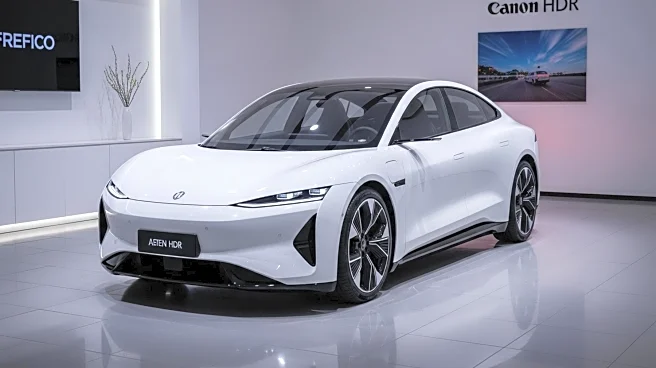What's Happening?
Automakers are providing substantial discounts on electric vehicles as the federal $7,500 tax credit is set to expire on September 30, 2025. These discounts, which can exceed $10,000, are driving a surge in EV sales as consumers rush to take advantage of the savings. Honda, for instance, is offering up to $19,000 off the MSRP of the 2025 Prologue, combining various bonuses and the tax credit. Other manufacturers like GM, Ford, Tesla, and Hyundai are also offering significant promotions. As a result, EV supply in the U.S. has dropped significantly, with inventory levels falling from 99 days in June to 59 days in August. Despite record EV sales, GM has warned that sales may slow as these discounts end.
Why It's Important?
The expiration of the $7,500 tax credit is a pivotal moment for the electric vehicle market in the U.S. It has spurred a temporary increase in sales, but the long-term impact could be a slowdown in EV adoption as prices rise. Automakers are using this opportunity to clear inventory, but the end of these discounts may lead to decreased consumer interest. This situation highlights the importance of government incentives in driving the transition to electric vehicles and the potential challenges the industry faces without them.
What's Next?
As the tax credit expires, automakers may need to adjust their strategies to maintain sales momentum. This could involve developing new incentives or focusing on cost reductions in EV production. The market will likely experience a period of adjustment as consumers react to the new pricing landscape. Additionally, policymakers may consider new measures to support EV adoption in the absence of the tax credit.









